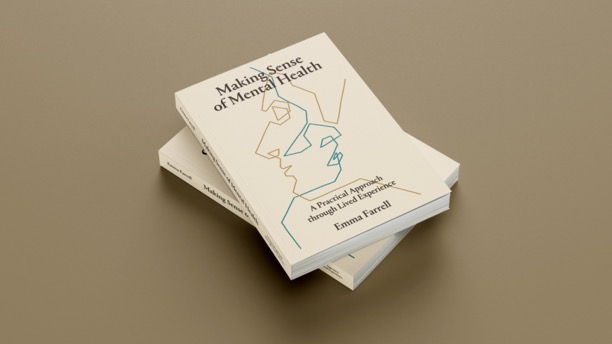This week's RTE investigates highlighted the complexity of finding the right professional mental health support. Psychiatrists, psychologists and psychotherapists work with similar problems but in different ways. This article aims to explain the differences and similarities between each as well as highlight the grey areas that make accessing the right kind of support even more challenging for those in distress.
Psychiatry is a branch of medicine which is concerned with the understanding, assessment, diagnosis and treatment of disorders of the mind.
What is psychiatry?
Psychiatrists are medical doctors who, having completed their degree and internship in medicine, undertake specialist training in psychiatry. They typically work in, or are attached to, hospitals and are concerned with the diagnosis and treatment of mental illness. This treatment can include referral to a psychologist or psychotherapist or to another professional in a multi-disciplinary team (MDT) such as an occupational therapist or social worker. Psychiatrists are distinct from psychologists and psychotherapists in that they can prescribe medication.
What is psychology?
Psychology is a scientific discipline concerned with the human mind and behaviour. Psychologists study people: how they think, how they act, react and interact. They can diagnose mental disorders using a diagnostic system such as the DSM or ICD and treat these disorders using a range of psychological approaches - many of which overlap with psychotherapy.
Psychologists are not usually medically qualified and only a small proportion of people studying psychology degrees will go on to work with people in distress. Psychologists can specialise in a number of areas, such as clinical, counselling, forensic, educational and occupational psychology.
What is psychotherapy?
Psychotherapy, sometimes referred to as talk therapy, is concerned with helping people identify and change troubling emotions, thoughts and behaviours. Psychologist and psychotherapist Dr Lucie Corcoran is well positioned to describe the difference between psychology and psychotherapy:
“Psychology traditionally strives for an objective, scientific, generalisable perspective on human thought and behaviour whereby the correct intervention can be identified and implemented in response to a person's specific "disorder" and distress. Psychotherapy provides a space for exploration of one's self and experiences, often without the promise of a neatly packaged "cure" in the form of a pre-designed intervention or interpretation.”
Psychotherapists can draw on many different approaches, some of which will also be used by psychologists. These include:
- Cognitive behavioural therapy
- Psychodynamic therapies
- Humanistic therapies
- Integrative psychotherapies
Regardless of the selected approach, the therapeutic relationship, or the relationship between psychotherapist and client, is central to psychotherapy. A psychotherapist may be a psychiatrist or a psychologist who has had further specialist training or they may be specialists in psychotherapy alone.
The Grey areas
Each psychiatrist, psychologist and psychotherapist will have their own strengths, approaches and preferences
While psychiatrists, psychologists and psychotherapists will all have completed initial training and accreditation in their disciplinary area, each professional will likely have their own approach, area of interest and advanced training which will result in a diverse clinical encounters. A person in distress attending one clinical psychologist, for example, might experience a very different clinical encounter than if they had attended another.
Each psychiatrist, psychologist or psychotherapist will have their own perspectives and preferences. For example, in a recent thinkful post, Clinical Psychologist Dr Cian Aherne described how he is drawn to the Power Threat Meaning Framework, which was developed as an alternative to more traditional diagnosis-based psychology. Another clinical psychologist, with the same qualification and training, might instead prefer the traditional diagnostic approach particularly when working with those who need a diagnosis to access additional services. While each professional must adhere to the standards and ethical requirements of their professional body, they will also draw on their strengths, preferences to provide the best care possible.
Not every person will respond to the same approach
We each have our own preferences and ways of making sense of the world and our experiences within it. As a result, there is no ‘one size fits all’ when it comes to mental health treatment and support. For example, Marie described working with her psychiatrist as "brilliant [...] She's tough on me but it's what I need". Adrianna, on the other hand, said that her psychiatrist "was just feeding me medication...I was like, 'you're not helping because you don't care if I feel fine or not. You're just upping my medication every time I see you'". Equally, Claire described how psychotherapy "was proactive enough" for her while working with a psychologist was more helpful to her "I felt like it was a medical thing like a clinical thing that I need to sort out as opposed to just a situational [thing that] needed to be talked out"*.
How do I know which one is for me?
The mental health landscape can be difficult to navigate. If you are struggling with your mental health, it can be really helpful to have an ally who can journey alongside you in finding the best form of support for you. This may take some time, with lots of trial and error, but the most important thing is to find somebody you can build a good relationship with - be they a psychiatrist, psychologist or psychotherapist. If the discipline or professional you are working with does not work for you, don't worry. We can sometimes feel if the therapy isn't working, there must be something wrong with us but often its just not the right therapy for us. Don't be afraid to speak to your psychiatrist, psychologist or psychotherapist about the therapy itself and to try different approaches if that feels right to you.
Dr Emma Farrell is a Chartered Psychologist, researcher and co-founder of thinkful.ie. Further examples of the lived experience of help-seeking can be found in Emma's book Making Sense of Mental Health: A Practical Approach Through Lived Experience.

